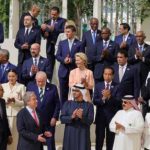A leading expert in blood transfusion services praised Dubai for being a backbone in the creation of services set up to improve blood transfusion safety globally.
Speaking at the MEDLAB Exhibition and Congress in Dubai, Dr Jean-Claude Faber, President of the L u x e m b o u r g H a e m o p h i l i a A s s o c i a t i o n i n Luxembourg City, said the UAE can be considered the “capital” in haemovigilance globally, which is the procedure of repor ting undesirable effects of transfusion to ensure the safety, efficiency and efficacy of blood transfusion.
Dr Faber explained that the UAE has been home to many “important events” relating to haemovigilance, and key outcomes from the WHO Global Consultation on Haemovigilance, held in Dubai in 2012, include the establishment of a global agreement to establish national haemovigilance systems.
According to Dr. Faber, haemovigilance is “a must” when ensuring high quality patient care, and lauded the UAE’s efforts in establishing an effective system to reduce risks and ensure top safety standards in blood transfusion services.
Led by Dr May Yassin Raouf, Head and Medical Director, Dubai Blood Donation Centre, the Blood Transfusion Medicine conference, which is held for the first time in the region saw a number of leading international industry figures discuss a host of pertinent topics in blood transfusion. Dr Faber emphasized the importance of blood
donation, stating that, while globally, “there are still challenges and risks when it comes to blood transfusion practices”, the “real risk for patients is a lack of blood”.
During the congress, a spotlight has been put on a number of topical issues such as the use of cardiac markers – biomarkers measured to evaluate heart function – in acute coronary syndrome, chronic heart failure and non-cardiac conditions. With three in 10 deaths in the UAE attributed to heart disease, having access to the latest research in the field of cardiac care will help assist the authorities in creating future strategies and plan effective initiatives to noncommunicable health issues such as this.













